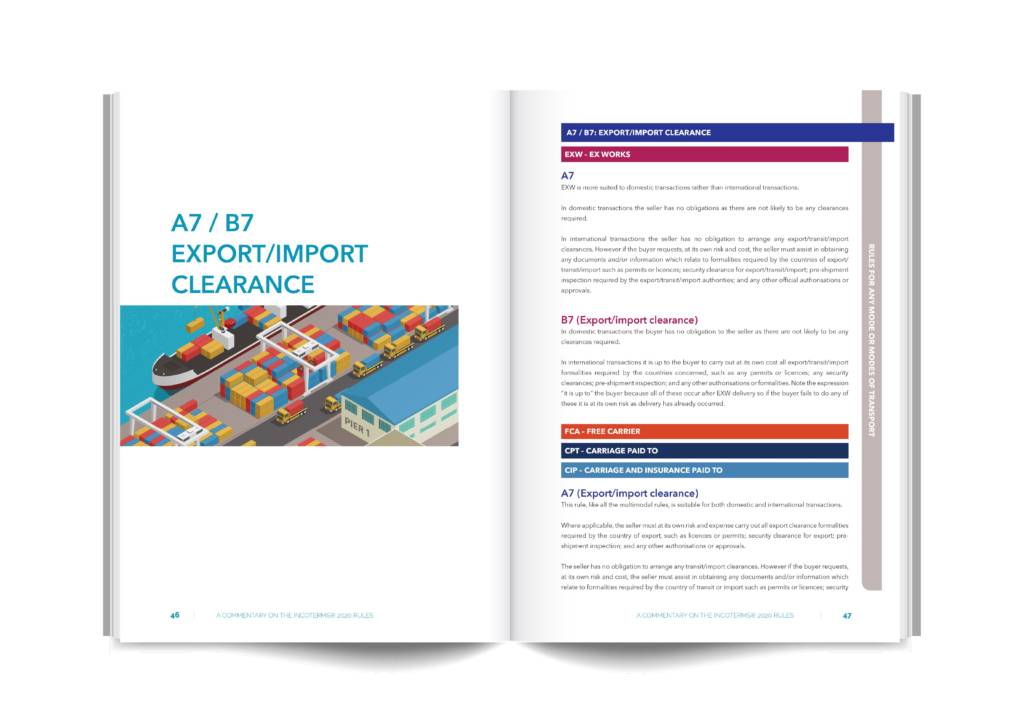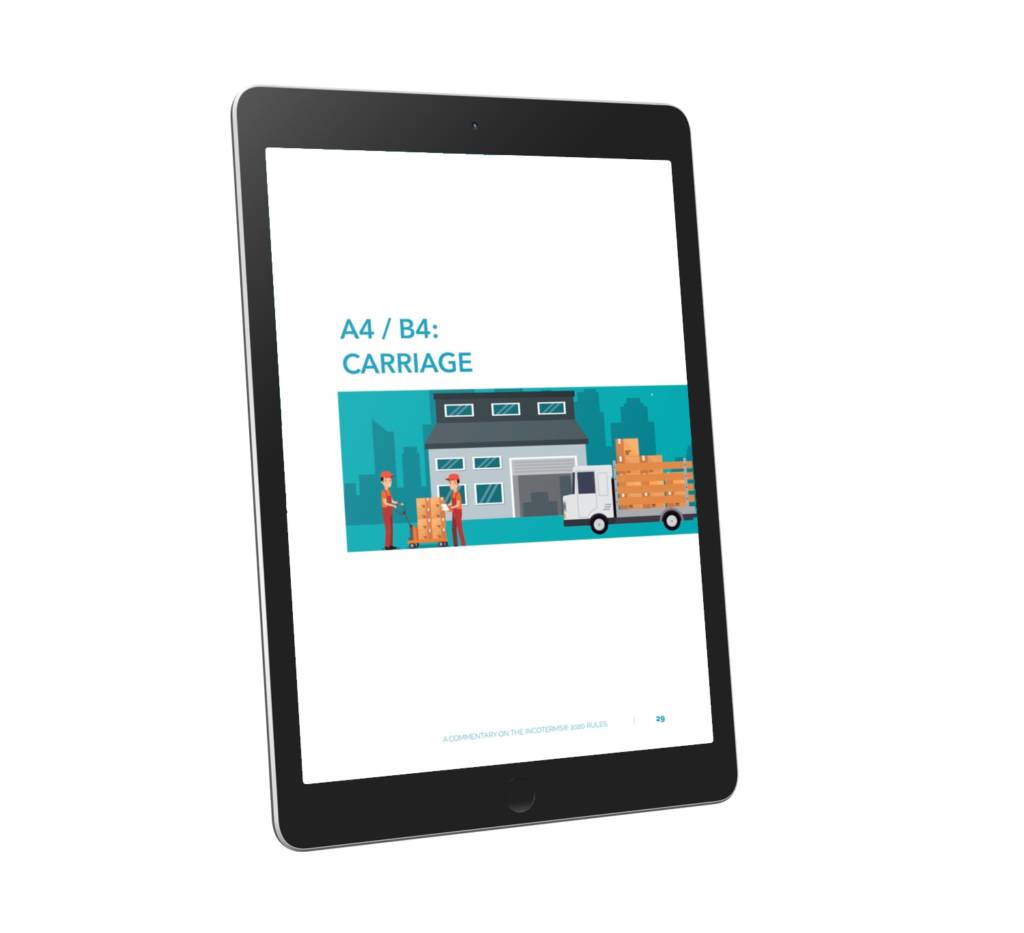
Incoterms 2020
Trade Finance Global (TFG) has published a comprehensive Commentary on the Incoterms® 2020 rules. This is meant to be used in conjunction with The International Chamber of Commerce’s (ICC) new book, Incoterms® 2020.
The Commentary on the Incoterms® 2020 rules is authored by Bob Ronai CDCS, a member of the ICC’s Incoterms® 2020 Drafting Group, in partnership with Trade Finance Global (TFG).
This 94 page e-book is designed to provide an Article by Article overview and commentary of the Incoterms® rules, in plain simple English.
A comprehensive overview and commentary of Incoterms® 2020, which was released on 10 September 2019. This 94 page e-book is designed to provide an Article by Article overview of the Incoterms rules as well as commentary, in plain simple English. The book is written and authored by Bob Ronai CDCS, a member of the International Chamber of Commerce’s Incoterms® 2020 Drafting Group, in partnership with Trade Finance Global (TFG), a Media Alliance Partner of the Incoterms 2020 UK Launch, forwarded by Deepesh Patel, Editorial Director of Trade Finance Talks.
-
Written by a Member of the ICC Incoterms® 2020 Drafting Group
-
Introduction to why Incoterms® 2020 Rules were written and the process
-
Article-by-article (A1-A10 and B1-B10) explanation of the rules
-
Any mode and sea / inland transport rules
-
Includes updates on EXW, FCA, CPT, CIP, DAP, DPU, DDP, FAS, FOB, CFR and CIF
-
Advantages and disadvantages of each Incoterms® Rule and how they might work with a Letter of Credit
-
Conclusions and top tips for using Incoterms® 2020 Rules
As with Incoterms® 2010, the new publication splits the eleven rules into two groups, the seven “Rules for any mode or modes of transport” and the four “Rules for sea or inland waterway transport.” The any mode/s rules are shown first as in reality the great majority of readers will be, or should be, using these rather than the maritime rules. The book emphasises more strongly than before that the maritime rules should not be used for container shipments even though these are carried by sea, and it is hoped with the anticipated increase in readership that this incorrect usage will fade out.
The any mode/s rules include the two contentious ones, EXW and DDP, in which the mode of transport used actually is irrelevant but which in these days of heightened border security are very difficult to use in international trade. The EXW rule describes the minimum the seller must do, but the DDP rule falls a tiny bit short of the maximum the seller could actually do in still omitting any responsibility to unload the goods at the destination point. Yet the new DPU rule does include this responsibility.

Incoterms Rules – Do’s and Dont’s
It is very important at the outset to explain what the Incoterms® 2020 rules do and do not do. They deal with matters only between the seller and the buyer, ie:
- obligations,
- risk and
- costs.
They are not a substitute for a contract of sale between these two parties, they are rules for the interpretation of eleven three-letter abbreviations used in these contracts and reflect business-to-business practice.
The International Chamber of Commerce’s (ICC) new book, INCOTERMS® 2020, was released on 10 September 2019. This book should be read in conjunction with the INCOTERMS® 2020 book, it does not substitute for it.

Rules
RULES FOR ANY MODE OR MODES OF TRANSPORT
- EXW EX WORKS (insert named place of delivery)
- FCA FREE CARRIER (insert named place of delivery)
- CPT CARRIAGE PAID TO (insert named place of destination)
- CIP CARRIAGE AND INSURANCE PAID TO (insert named place of destination)
- DAP DELIVERED AT PLACE (insert named place of destination)
- DPU DELIVERED AT PLACE UNLOADED (insert named place of destination)
- DDP DELIVERED DUTY PAID (insert named place of destination)
RULES FOR SEA AND INLAND WATERWAY TRANSPORT
- FAS FREE ALONGSIDE SHIP (insert named port of loading)
- FOB FREE ON BOARD (insert named port of loading)
- CFR COST AND FREIGHT (insert named port of destination)
- CIF COST INSURANCE AND FREIGHT (insert named port of destination)